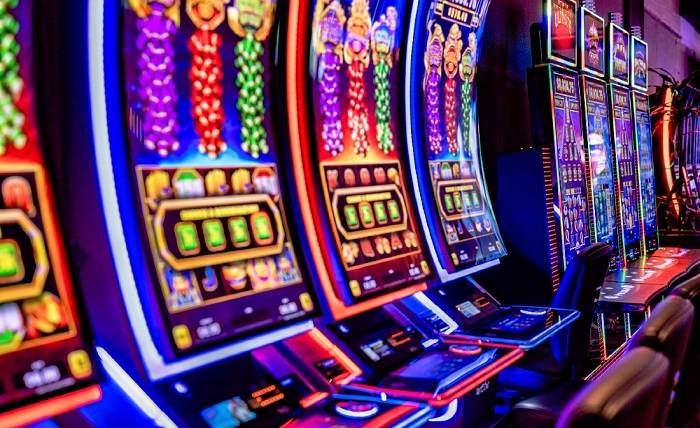Slot machines are a popular form of gambling entertainment that has captivated players for decades. At the heart of every situs slot machine is the concept of randomness, where the outcome of each spin is determined by complex algorithms and the use of random number generators (RNGs). In this article, we will delve into the science of randomness in slot machines, explaining how RNGs work, the role of mathematics, and the measures taken to ensure fair and unbiased gameplay.
The Basics of Slot Machine Randomness
The Quest for Random Outcomes
Slot machines are designed to produce random outcomes, ensuring that every spin is independent of previous and future spins. This randomness creates excitement and unpredictability for players.
The Role of Random Number Generators (RNGs)
RNGs are computer algorithms that generate sequences of numbers in a completely random and unpredictable manner. These algorithms are the backbone of modern slot machines.
Pseudo-Random vs. True Random
Most RNGs used in slot machines are pseudo-random, meaning they generate numbers based on a deterministic process that appears random. True random generators, on the other hand, rely on physical processes that are inherently unpredictable.
How RNGs Work in Slot Machines
Seed Values
RNGs require a starting point, known as a seed value, to initiate the random number generation process. This seed can be based on various factors, such as the current time or user inputs.
Complex Algorithms
RNGs employ sophisticated mathematical algorithms to generate sequences of numbers that appear random. These algorithms use the seed value as a starting point but are designed to prevent predictability.
Instantaneous Results
RNGs can produce thousands of numbers per second, ensuring that slot machine reels’ spins yield immediate and seemingly random outcomes.
Ensuring Fairness in Slot Machines
Regulatory Standards
Gaming authorities and regulatory bodies impose strict standards on the use of RNGs in slot machines to ensure fairness and prevent manipulation.
Auditing and Certification
Independent testing labs audit and certify slot machines to verify that their RNGs operate as intended and produce genuinely random results.
Return to Player (RTP)
The concept of Return to Player (RTP) is used to indicate the percentage of wagers that a slot machine is expected to return to players over the long term. For example, a slot machine with an RTP of 96% is expected to pay back $96 for every $100 wagered.
The Mathematics of Slot Machine Odds
Paytable and Symbol Frequency
The paytable of a slot machine displays the winning combinations and their corresponding payouts. The frequency of symbols on the reels determines the odds of hitting different winning combinations.
Reel Strips and Virtual Stops
Reel strips are sets of symbols on each reel. The number of virtual stops on each reel determines the odds of landing specific symbols on the payline.
Hit Frequency and Volatility
Hit frequency represents how often a slot machine produces a winning combination. Volatility, on the other hand, refers to the risk and reward profile of a game.
The Myth of Hot and Cold Machines
Hot Machines
The idea of hot machines, which are believed to be due for a big win, is a common slot machine myth. In reality, each spin’s outcome is independent and random, regardless of past results.
Cold Machines
Similarly, the notion of cold machines, which are believed to be on a losing streak, is also a myth. The randomness of slot machines means that cold streaks can occur without any specific pattern.
Skill vs. Chance in Slot Machines
Pure Games of Chance
Slot machines are considered pure games of chance, as the outcome of each spin is entirely random and not influenced by player skill.
Bonus Features and Interactive Elements
While the base game is purely chance-based, bonus features and interactive elements can provide players with some agency in the outcome. However, these elements are often based on luck as well.
The Future of Randomness in Slot Machines
True Random Number Generation
Advancements in technology may lead to the adoption of true random number generation methods in slot machines, which rely on physical processes for random outcomes.
Blockchain and Provably Fair Gaming
Blockchain technology offers transparency and provable fairness, which could be integrated into slot machines to further ensure random outcomes and build player trust.
Conclusion
The science of randomness in slot machines is a crucial aspect of their design and operation. Random number generators (RNGs) lie at the heart of slot machines, producing independent and unpredictable outcomes for each spin. Rigorous testing and certification ensure fairness, while mathematical principles dictate the odds and payouts of the game. As technology continues to evolve, the future of slot machine randomness may see the adoption of true random number generation methods and the integration of blockchain technology for provably fair gaming. As players continue to enjoy the excitement and thrill of slot machines, the science of randomness will remain the foundation of fair and enjoyable gameplay.








